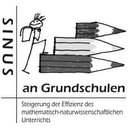What are the typical problem areas in teaching science and mathematics?
Typical problem areas in teaching science and mathematics were empirically established in the past and grouped into ten so-called »modules« in the SINUS programme. Teachers at elementary schools often know these problem areas from their everyday work in the classroom. The structure of the ten modules (and the respective handouts with more detailed module descriptions for mathematics and science) helps teachers to better define their specific problems and handle them more efficiently.
The individual modules are:
- Good tasks
- Discovery, research and explanation
- Taking up students ideas, developing essential concepts
- Recognising learning difficulties
- Discovering students talents and supporting them
- Interdisciplinary and cross-subject teaching
- Taking up (girls and boys) interests and developing them
- Learning independently learning together
- Assisting the learning process assess learning success
- Creating transitions
The IPN as coordinator of the programme supplies a handout (module description) for every module, each specified for mathematics and science teaching. These provide didactic background information on each module for teachers as well as suggestions for the specific improvement of their individual teaching.
Modules 1 to 3 are basic modules. Each school team works with at least one of these basic modules. In addition, each team selects complimentary modules from 4 to 10 which are best suited for combination with the respective basic module to intensify work on SINUS key objectives. Modules 1 to 4 deal with diagnostics and the advancement of students with special difficulties. Modules 5 and 8 deal with differentiation and learning difficulties.
